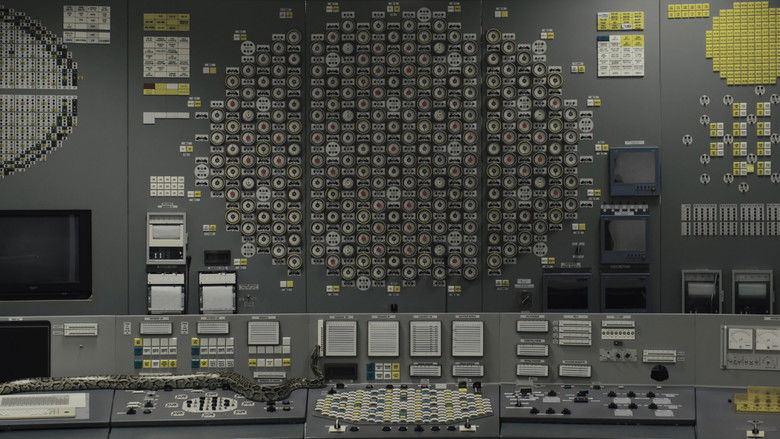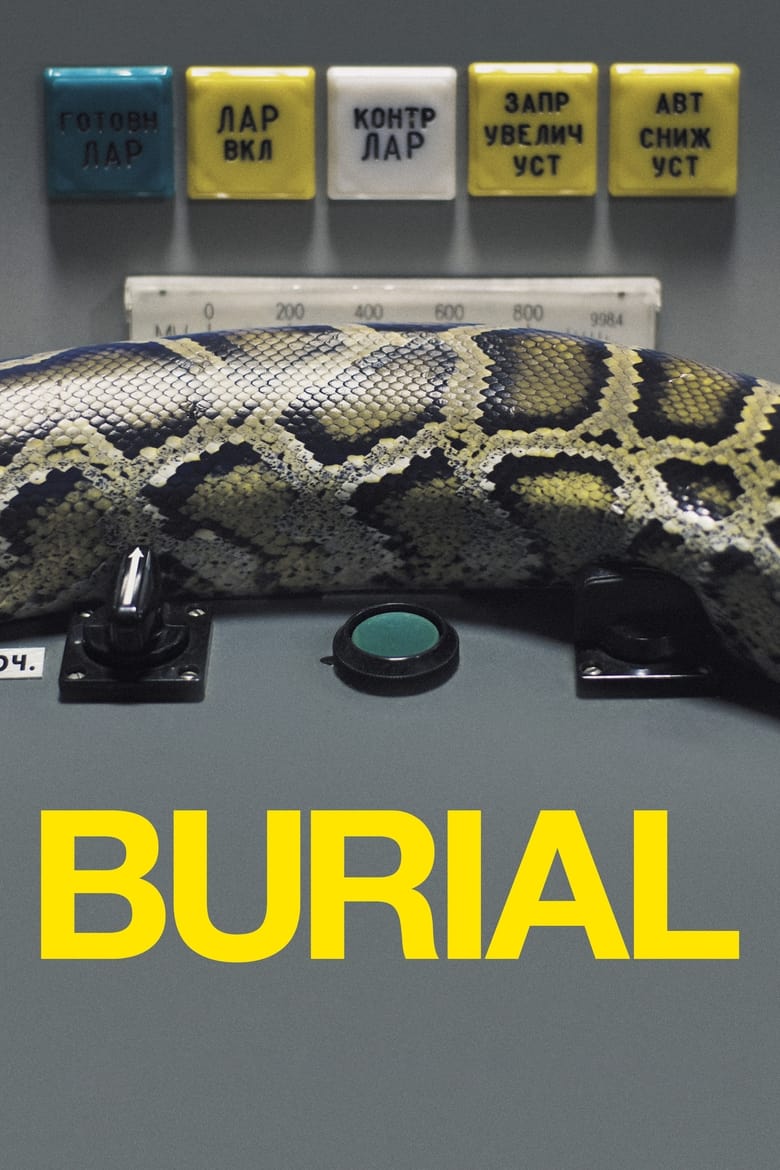Loading


Burial
Genres
Documentary
Overview
With striking images and meticulous sound work, Burial reminds us of the paradoxical relationship between scientific development and the destruction of nature. Questioning the effects of human activity on the planet we inhabit and which we have put at risk, the film focuses on the unsolved issues of nuclear plants and nuclear activity.
Details
Budget
$0
Revenue
$0
Runtime
60 min
Release Date
2022-04-15
Status
Released
Original Language
Lithuanian
Vote Count
7
Vote Average
5.6
Cast
Meet the talented actors who bring the movie to life.
Similar Movies
Explore movies similar to this one that you might also enjoy.
8.0
Supervolcan Yellowstone : Menace sur la planète ?
2022-10-10 | fr
9.0
Madagascar or the Great Carnival of the Chameleons
A unique documentary on chameleons living on the island of Madagascar, the world’s largest chameleon concentration, revealing incredible never-before-seen images and behaviors. Discover their incredible abilities such as: sleeping techniques, dancing, camouflage, 340° peripheral vision, catapult tongue, seduction, fluorescence...
2024-06-01 | en
10.0
FIT Hives: Sustainability - The Secret to Survival
A documentary that introduces FIT Hives, a student-run organization whose mission is to educate the FIT community about the importance of bees to the environment, the use of bee-derived resources in the industries related to the majors at FIT and its goal to put a beehive on the roof. FIT Hives is a recipient of an FIT Innovation Grant which also supported the making of this documentary.
2017-04-08 | en
0.0
The Cracking of Glen Canyon Damn
The birth of the radical environmental movement is captured in this short, poetic film on the legendary direct action at Glen Canyon Dam in March of 1981. The film contains one of the only interviews ever given by the late, great author Edward Abbey along with his classic speech from the back of a pick-up truck.
1982-01-01 | en
0.0
Confessions of a CEO: My Life in an Out-of-Balance World
A bare-knuckled critique of corporate America told through the powerful true story of a toxic CEO who evolves from a profits-over-people, philandering executive to an unorthodox leader, populist messenger, and mentor to American influencers. It’s a story of growth, redemption and the impact of self-awareness on leadership and life.
2025-01-10 | en
8.0
Guardian of the river
This documentary details the indigenous environmental movement in Honduras in 2016 specifically in the aftermath of prominent activist Berta Cáceres' assassination at the hands of a hired hitman. The documentary shows the effects of international and domestic dam development on the local landscape and the organized political resistance efforts.
| es
6.3
Atlantis
Atlantis is filmmaker Luc Besson's celebration of the beauty and wonder of the world beneath the sea, expanding upon themes touched on in his film The Big Blue. Combining stunning underwater cinematography and a hypnotic score by Eric Serra, Besson's singular vision defies dialogue or narrative structure to explore ocean life as you've never seen it before.
1991-08-21 | fr
0.0
Apprendre à tuer
2007-01-01 | fr
0.0
The Grand Swim
The documentary chronicling Oly Rush's world record attempt to swim non-stop around Grand Cayman. All in the name of raising awareness for plastic pollution.
| en
0.0
The Cost of Forever
In "The Cost of Forever", we uncover the hidden and costly dangers of ‘forever chemicals’ in our rivers and drinking water sources, following Riverkeepers and water protectors as they strive to protect communities—and themselves—from PFAS contamination.
2024-09-27 | en
6.5
In the Mind of Plants
Neurobiology has shown in the recent years that contrary to the traditional boundaries between animal and plants, plants can feel, move and even think. Over the recent years, a small but growing group of researchers from Austria, Germany, Italy, UK, Japan, South Africa and the USA, has developed a new scientific field of research: the neurobiology of plants. Their discoveries question the traditional boundaries set between the animal and the vegetable kingdom: plants are capable to develop the cognitive process claimed by humans and animals. If plants can move, and feel... Could they possibly think ? In a creative and captivating scientific investigation style, through spectacular specialist photography and CGI, and re-creating scientific experiments, this documentary is bound to change your own perception of plants.
2009-01-01 | fr
0.0
Motherland Memories
Ompung Putra Boru, a sixties indigenous Batak woman from Humbang Hasundutan, North Sumatra, retraces her life stories through photographs that interweave her past and present as a wife, mother, healer and indigenous land defender in two neighboring villages. Her multi-layered stories are juxtaposed with visual records of everyday life in the two villages, where people’s living space is still increasingly threatened by a giant pulp expansion.
2022-11-19 | id
0.0
Heat Pumps: Are They Really Worth It?
Britain is undergoing a domestic heating revolution - heat pumps are replacing gas boilers and apparently everyone should prepare to put one in their homes. Alexis Conran investigates whether these devices live up to the hype, examining the pros and cons to help consumers choose the best option. Plus, tips on maximising savings.
2025-01-30 | en
10.0
The Atlantis Mussels
This film narrates the story of a community on the coast of the Special Capital Region of Jakarta, experiencing the direct impact of land subsidence and global climate change that jeopardize their area. In an effort to face this crisis, they come up with a unique solution by using green mussels shells for raising the ground to prevent the disaster from engulfing their homes.
2024-01-15 | id
10.0
Ashes
2024-01-21 | el
0.0
DARIO - How To Not Change The World
At Brandenburg Gate in Berlin, a man jumps over a barrier. Within seconds, five police officers catch him and push him to the ground. He laughs loudly. Evidently, this is exactly what he was aiming for. Dario is disappointed with current climate policies and sees only one solution: strike out and resist. His resistance has already led to several outstanding criminal proceedings against him in Germany. A request from Switzerland comes at just the right moment to prove himself further: the activist group “Klimastreik” is looking for someone who is willing to commit a “crime”.
2025-05-15 | de
8.0
Earth: Muted
Three farming families in Hanyuan, China, strive to give their children a good life in the midst of an ecological crisis, as widespread use of pesticides leads to a dramatic decline in bees and other pollinating insects in the valley.
2021-09-20 | zh
0.0
TEN MONTHS
MIEZI KUMI (TEN MONTHS) is a short documentary of the love between Zacharia Mutai, his family and the last two northern white rhinos, which he has to take care of for ten months in a year.
2022-11-11 | sw
7.9
Koyaanisqatsi
Takes us to locations all around the US and shows us the heavy toll that modern technology is having on humans and the earth. The visual tone poem contains neither dialogue nor a vocalized narration: its tone is set by the juxtaposition of images and the exceptional music by Philip Glass.
1983-04-27 | en
6.7
The 11th Hour
A look at the state of the global environment including visionary and practical solutions for restoring the planet's ecosystems. Featuring ongoing dialogues of experts from all over the world, including former Soviet Prime Minister Mikhail Gorbachev, renowned scientist Stephen Hawking, former head of the CIA R. James Woolse
2007-08-17 | en